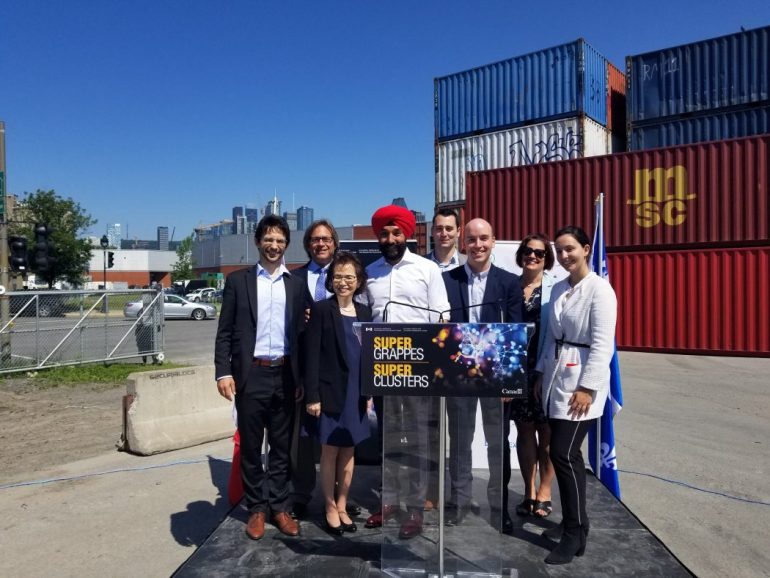The Quebec-based Scale AI Supercluster, one of five members of the federal government’s Innovation Superclusters Initiative, focusing on artificial intelligence for supply chains, has announced its first four projects. The federal government is investing up to $2 million in these first projects, combined with $3.1 million in contributions from industry and other partners.
“We are proud to see that our smart terminal project is part of this shared vision of propelling the supply chain to another level.”
The Supercluster, which received $230 million from the federal government and $30 million from the Government of Quebec, will see companies explore ways AI can be used to reduce costs and improve efficiencies across the board in the consumer goods, farming, telecom and shipping sectors. The federal government said other approved projects will see more than 20 firms and research partners develop ways to improve their logistics and save costs.
“With these four selected projects, Scale AI is entering its operational phase,” said Julien Billot, CEO of Scale AI. “Since the official launch of our activities a few weeks ago, we have received a significant number of project submissions and are working with our various partners to select other projects very soon. I encourage all companies interested in integrating AI into their supply chain to continue to contact our teams to present us with their project proposal.”
One project, led by online food wholesale and logistics company, Local Line, is expected to significantly reduce transportation costs for farmers by using AI-informed algorithms to forecast shipping dates well into the future, facilitating better planning and greater efficiency.
RELATED: MindBridge wants to create the Microsoft of AI applications
Montreal-based Ray-Mont Logistics, a logistics services company facilitating international trade by enhancing the container supply chain will be another one of the Scale AI projects. The company, founded in 1992, is leading a project that aims to make the use of shipping containers more efficient.
“As a founding member of Scale AI, we are proud to see that our smart terminal project is part of this shared vision of propelling the supply chain to another level,” said Charles Raymond, president and CEO of Ray-Mont Logistics International. “We have the ambition, the expertise and the creativity to build on this momentum by continuing to offer flexible, innovative and high-quality solutions to our customers and partners.”
Earlier this month, Scale AI launched a call for projects and created an independent project evaluation committee to select projects that combine machine learning, operational research, and data science that can be applied to supply chains.
This marks the third Supercluster to announce projects since the government announced the winning cluster proposals almost a year and a half ago. In March, the BC-based Digital Technology Supercluster announced seven projects in total with the goal of improving service, delivery, and efficiency in natural resources, precision health, and industrial sectors.
Yesterday, the Prairies-based Protein Industries Supercluster announced just one of its projects, designed to “focus on advancements in technologies to improve oil and protein ingredient values in canola and hemp.”
RELATED: Navdeep Bains says not-for-profit model will keep Superclusters accountable
Scale AI has known since February 2018 that it had been chosen alongside four other Superclusters for the federal government’s Supercluster Initiative. All five received their funding in the fall. The grant amounts from the Scale AI are contingent upon several factors, including the level of collaboration, the integration of AI, and the participation of small and medium-sized enterprises in projects.
The five Superclusters are charged with building a shared competitive advantage that attracts research, investment, and talent by addressing gaps, increasing business expenditures on R&D and advancing a range of business-led innovation and technology leadership. The Superclusters are also meant to generate new companies and commercialize new products that position firms to scale and strengthen collaborations between private, academic, and public sector organizations. It’s expected that the government will announcements additional Supercluster updates later this week.
Image courtesy Scale AI via Twitter


